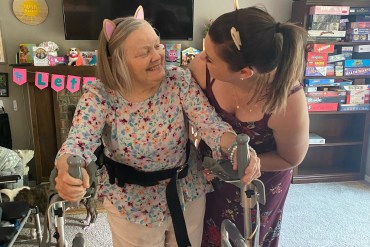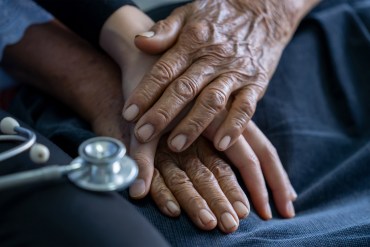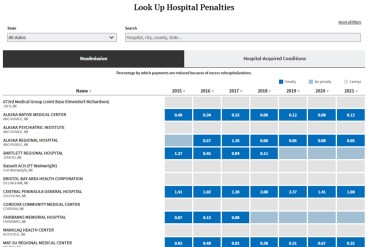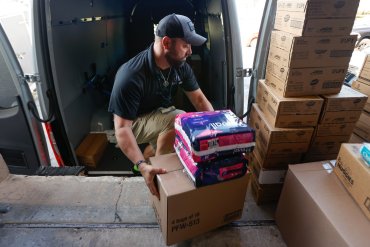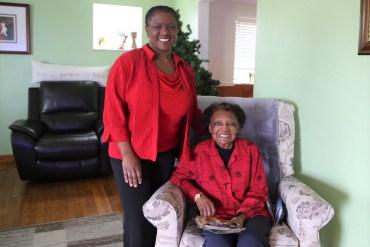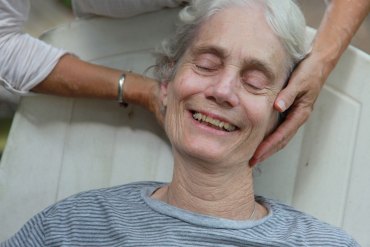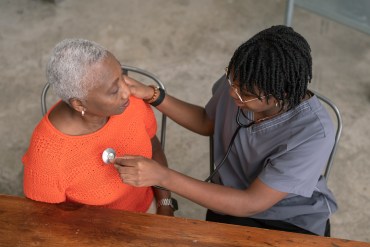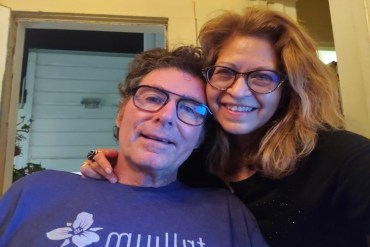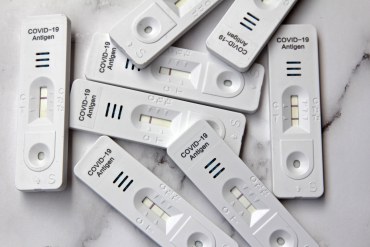Biden Administration Proposes New Standards to Boost Nursing Home Staffing
The proposal would require major hiring at the most sparsely staffed homes. But the proposal is already badly received by the nursing home industry, which claims it can’t boost wages enough to attract workers.
Exclusive: CMS Study Sabotages Efforts to Bolster Nursing Home Staffing, Advocates Say
Research commissioned by the Centers for Medicare & Medicaid Services analyzed only staffing levels below what experts have previously called ideal. Patient advocates have been pushing for more staff to improve care.
A New Medicare Proposal Would Cover Training for Family Caregivers
The federal government is proposing having Medicare pay professionals to train family caregivers how to perform tasks like bathing and dressing their loved ones, and properly use medical equipment.
New Alzheimer’s Drug Raises Hopes — Along With Questions
Clinics serving Alzheimer’s patients are working out the details of who will get treated with the new drug Leqembi. It won’t be for everyone with memory-loss symptoms.
Look Up Your Hospital: Is It Being Penalized by Medicare?
Each year, Medicare punishes hospitals that have high rates of readmissions and high rates of infections and patient injuries. Check out which hospitals have been penalized.
The Real Costs of the New Alzheimer’s Drug, Most of Which Will Fall to Taxpayers
The annual cost of lecanemab treatment quadruples if the expense of brain scans to monitor for bleeds and other associated care is factored in. The full financial toll likely puts it beyond reach for low-income seniors at risk of Alzheimer’s, experts say.
New Weight Loss Drugs Carry High Price Tags and Lots of Questions for Seniors
Although nearly 40% of Americans 60 and older are obese, Medicare doesn’t cover weight loss medications. Meanwhile, studies haven’t thoroughly examined new drugs’ impact on older adults.
In Older Adults, a Little Excess Weight Isn’t Such a Bad Thing
Researchers have found that while obesity at any age risks harming health, a few extra pounds in later life isn’t cause for concern.
Why the Next Big Hope for Alzheimer’s Might Not Help Most Black Patients
Black patients and other minorities tend to be diagnosed at later stages of the disease, which would exclude them from use of Leqembi. Few Black people were included in the main trial of the drug.
More States Drop Sales Tax on Disposable Diapers to Boost Affordability
Last month, Florida joined a growing number of states in banning sales taxes on diapers to make them more affordable for older adults and families with young children. Though diapers are essential for many, they are not covered by food stamps. Nor are incontinence products for older adults typically covered by Medicare. The cost can easily add up on a fixed income.
Dementia Can Take a Toll on Financial Health, as Some Families Learn the Hard Way
People with dementia and their families often find themselves with few legal rights when dealing with financial scams or the mismanagement of their assets. Research reveals financial troubles can be both an early sign and a painful symptom of cognitive decline.
Massage Therapists Ease the Pain of Hospice Patients — But Aren’t Easy to Find
The pandemic disrupted the massage industry. Now those who specialize in hospice massage therapy are in demand and redefining their roles.
How to Negotiate With Resistant Aging Parents? Borrow These Tips From the Business World
Negotiation techniques can help health care providers and family caregivers find common ground with older adults who resist advice or support.
Cardiovascular Disease Is Primed to Kill More Older Adults, Especially Blacks and Hispanics
Cardiovascular disease is the biggest killer of older Americans, with Black and Hispanic people at higher risk. Despite medical advances, researchers say, disparities are expected to worsen in the coming decades.
Mammograms at 40? Breast Cancer Screening Guidelines Spark Fresh Debate
There is no direct evidence that screening women in their 40s will save lives, yet modeling suggests expanding routine mammography to include them might avert 1.3 deaths per 1,000. Highlighting the risk of false positives, some specialists call for a more personalized approach.
¿Mamografías a los 40? Nueva pauta para la detección del cáncer de seno genera debate
Algunos médicos e investigadores que están interesados en un enfoque más individualizado para encontrar tumores problemáticos se muestran escépticos y plantean preguntas sobre los datos y el razonamiento detrás del cambio radical del Grupo de Trabajo de Servicios Preventivos de Estados Unidos
Remote Work: An Underestimated Benefit for Family Caregivers
The debate about whether employees should be required to return to the workplace has generally focused on commuting, convenience, and child care. A fourth C, caregiving, has rarely been mentioned.
When Older Parents Resist Help or Advice, Use These Tips to Cope
Dealing with a stubborn or resistant older parent can be a difficult problem for adult children. Family caregivers and professionals have some hard-won lessons on how to manage these evolving relationships.
Tips para ayudar a los padres mayores que se resisten a recibir ayuda o consejos
Lidiar con un padre mayor que se resiste obstinadamente a aceptar ayuda no es fácil. Pero la solución no es que los padres sientan que se está pasando por encima de ellos, tomando el control de sus asuntos.
A Covid Test Medicare Scam May Be a Trial Run for Further Fraud
Before the covid-19 public health emergency ended, Medicare advocates around the country noticed a rise in complaints from beneficiaries who received at-home covid tests they never requested. Bad actors may have used seniors’ Medicare information to improperly bill the federal government — and could do it again, say federal investigators.





